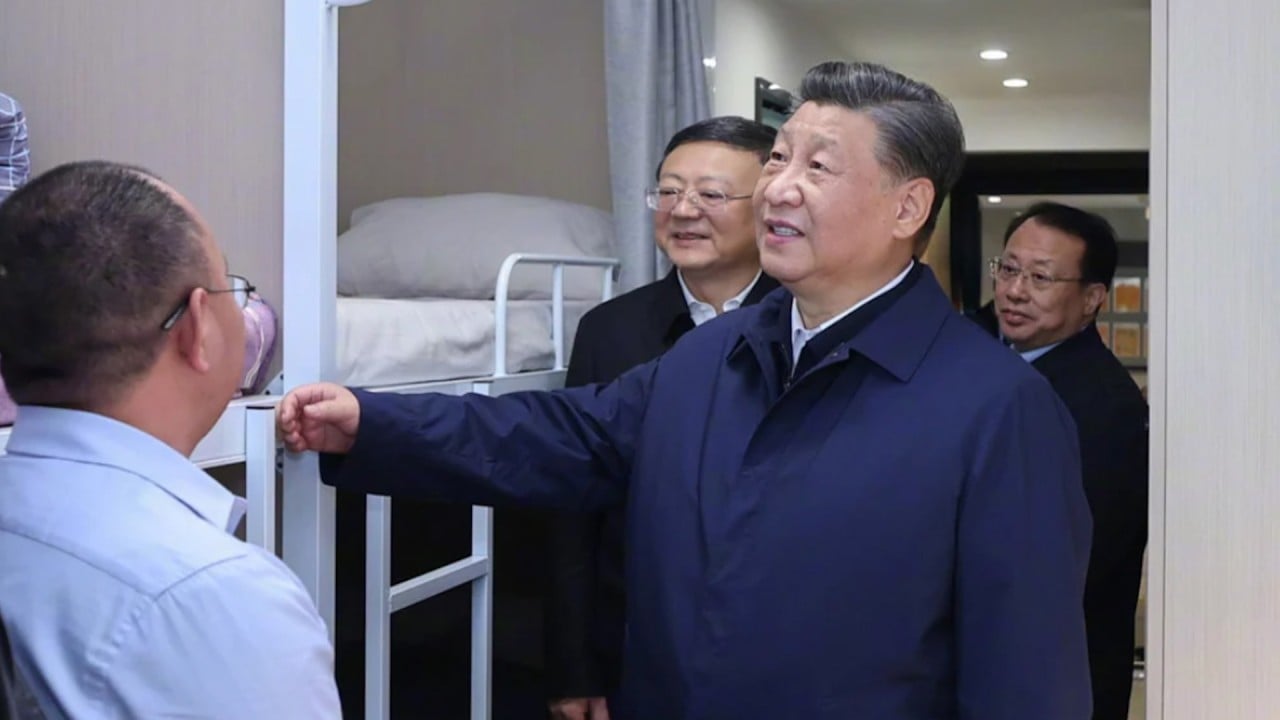Xue Kan, the Communist Party secretary for Yangpu, once known for its heavy industries, told reporters at a media briefing on Friday that the district is trying to achieve a “cluster effect” by fully mobilising capital, talent and technologies to drive innovation and bolster the local economy.
He said artificial intelligence and internet technology will be the two key areas in which Yangpu looks to build world-class businesses amid Shanghai’s efforts to turn itself into a tech innovation hub.
The party secretary did not elaborate on which technology start-ups or software developers Yangpu is targeting, but he said companies in the traditional manufacturing sector are also welcome because their businesses can be digitalised to improve manufacturing and marketing efficiency.
Once viewed as a “rust belt” with industries like shipbuilding, textiles and power generation at its heart, Yangpu, with a population of 1.2 million, has evolved into an area driven by technology businesses from e-commerce and delivery service platforms to computer software design companies.
It is now home to about 7,000 tech firms whose revenues represent more than half of the total sales raked in by all the businesses based in the district, Xue said.
They also generate taxes that amount to a third of Yangpu’s fiscal income, he added.
Yangpu, one of 16 districts in Shanghai, has a 15.5km coastline on the western bank of the Huangpu River, which is known as the East Bund.
District officials said last year they were targeting both Chinese and international technology firms as well as talented individuals for the creation of an innovation belt.
Last May, Yangpu announced that it would offer up to 15 million yuan (US$2.1 million) to attract promising technology companies to the coastline.
Yangpu is also banking on its educational resources, such as the key national universities of Fudan and Tongji, both of which are located around the district’s Wujiaochang area.
The Shanghai Technology Exchange, China’s first permanent market for trading intellectual property rights and technologies, is also based in Yangpu.
The exchange, one of the three national-level bourses in the country that provide technology trading services, along with the Beijing-based China Technology Exchange and the Shenzhen Stock Exchange, enables mainland companies to buy tech-related intellectual property rights and laboratory research from owners such as universities and scientific researchers.
So far this year, it has recorded transactions worth 7.1 billion yuan.
Xue is also adamant about drawing foreign direct investment to Yangpu with efforts to fine-tune its business environment such as cutting red tape and providing financing support.
Shanghai has pledged to offer financing and land-use support to foreign investors, as the commercial and financial capital of mainland China looks to achieve 5 per cent economic growth again this year.
The city’s mayor, Gong Zheng, told a press conference in January that greater foreign direct investment, which hit an all-time high last year, would effectively buttress the municipal government’s economic recovery efforts in 2024.
The city attracted US$24 billion in foreign funds last year, narrowly surpassing the previous record of US$23.96 billion in 2022.


